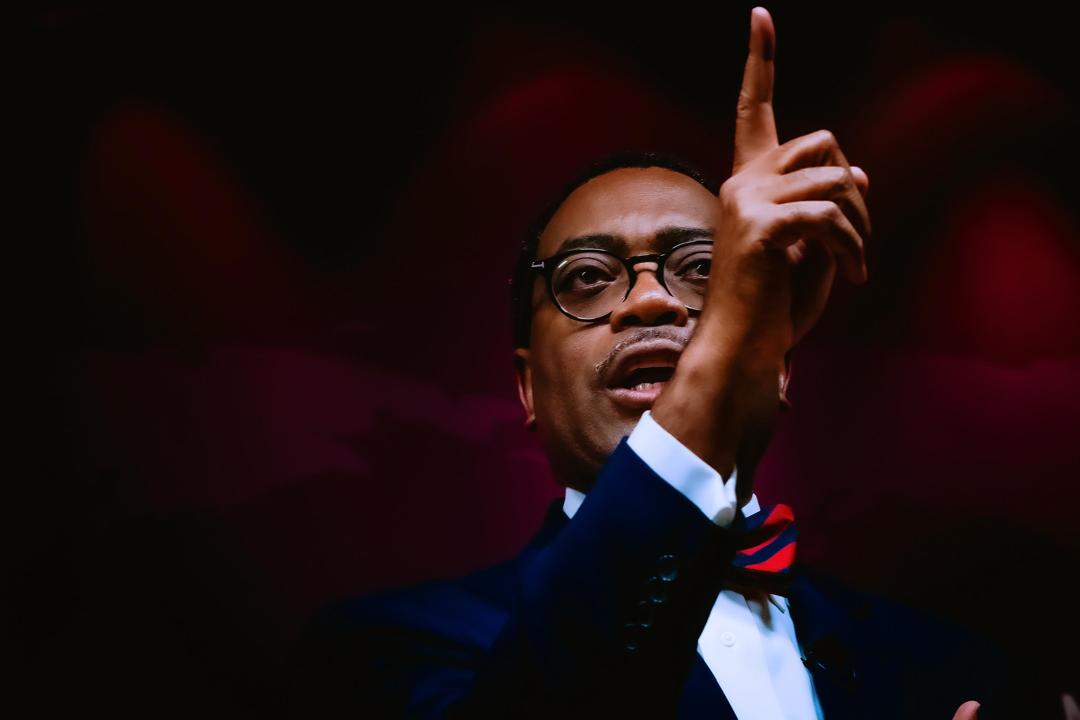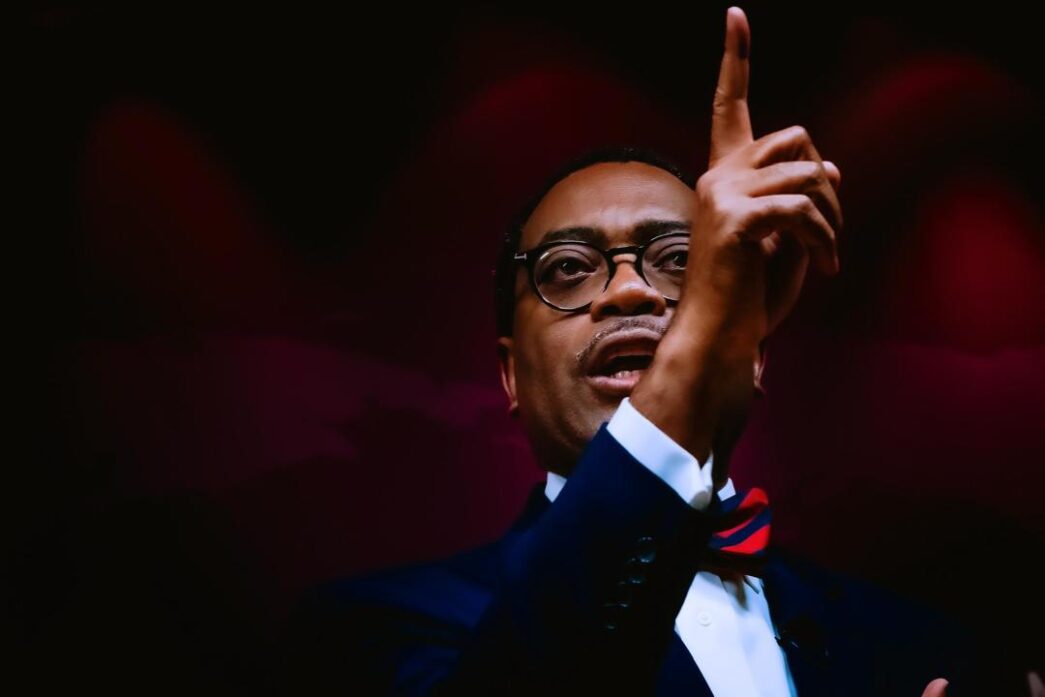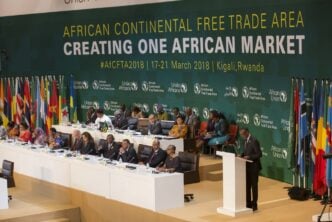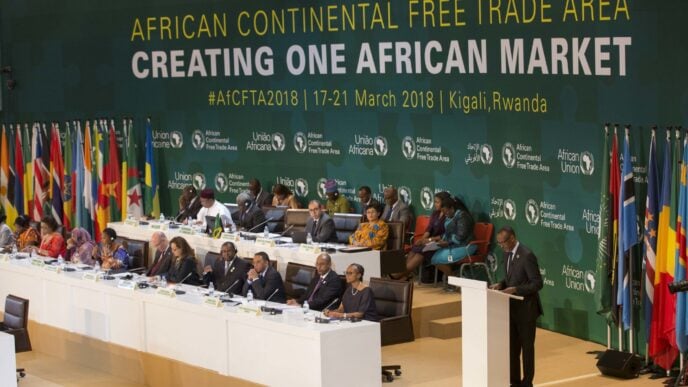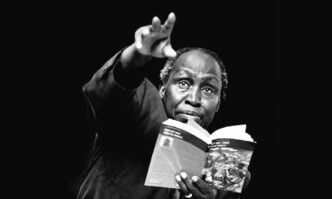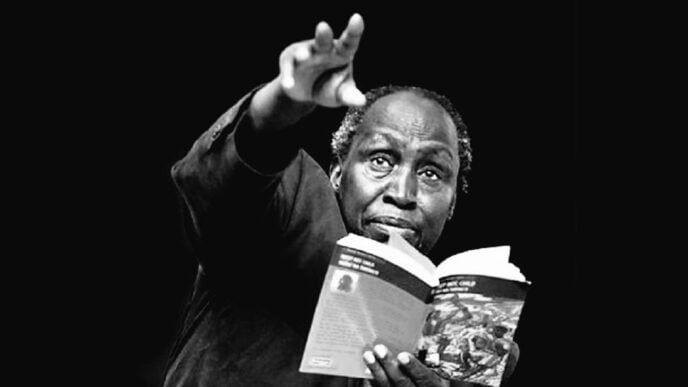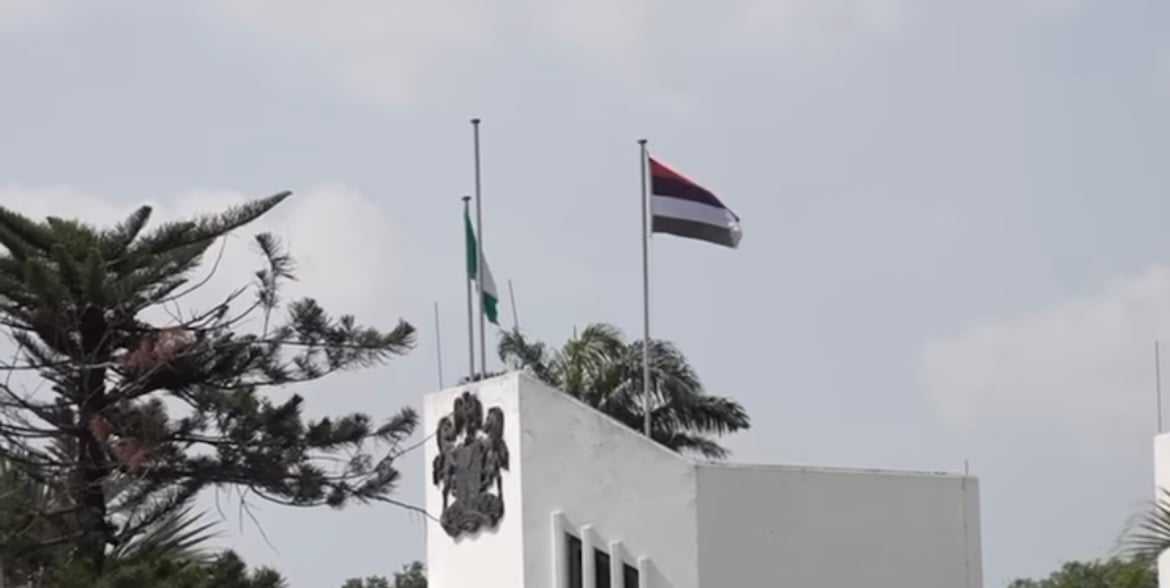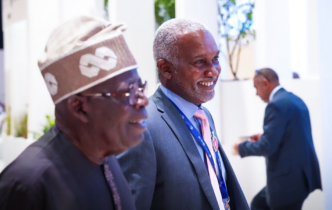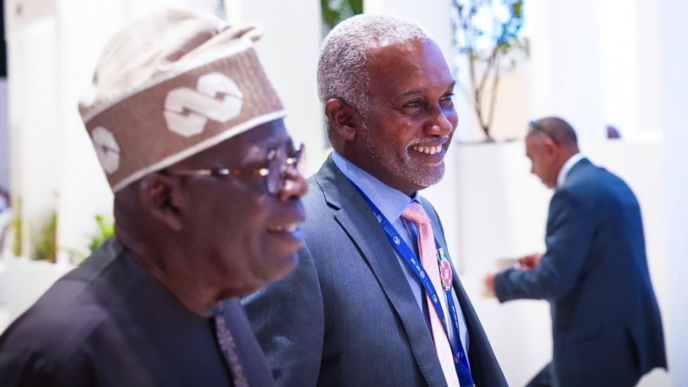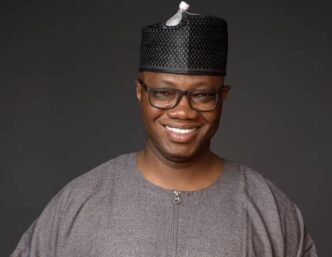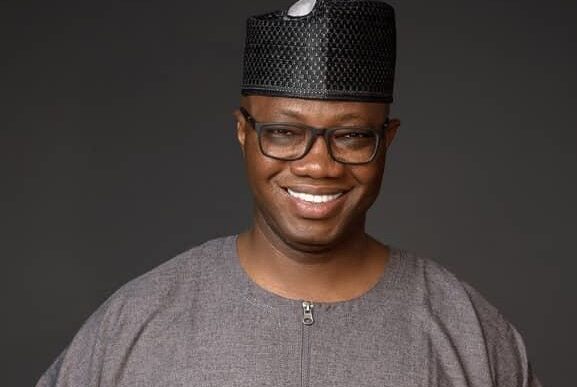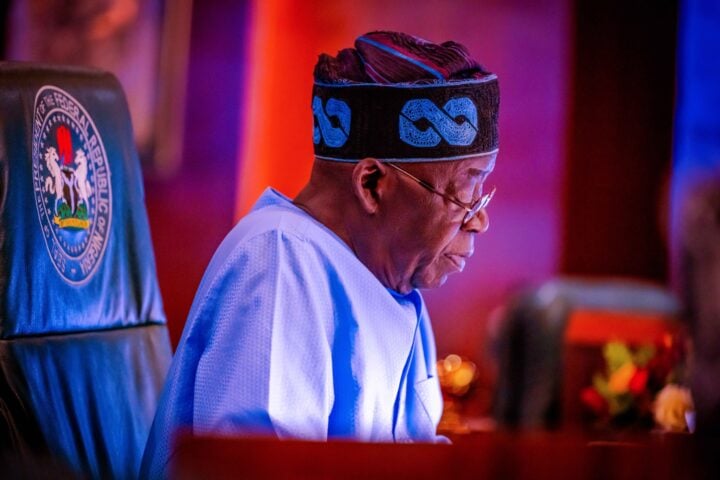BY TOSIN ADEOTI
Three days ago, I came across a post by Kelechi Deca, who I suppose is in Abidjan, announcing the election of a new president at the African Development Bank (AfDB) today, May 29. It immediately brought my thoughts to the man who has led the institution with vision and distinction since 2015— Akinwumi Adesina. I have long felt compelled to write about him, but the moment never quite presented itself. Now, as he prepares to hand over the reins, the opportunity to reflect on his remarkable legacy is not one I could allow to pass.
“This is not a job. This is a mission.” These words, spoken by Akinwumi Adesina as he prepared to conclude a monumental decade at the helm of the African Development Bank (AfDB), ring with the kind of purpose that has defined every step of his extraordinary, and frankly, unbelievable life. As Africa bids farewell to one of her most illustrious sons in his capacity as AfDB President, we look back not just at a tenure, but at a legacy, a life’s work etched in transformation, transparency, and tireless devotion to the continent.
Born on February 6, 1960, in the ancient city of Ibadan, Nigeria, to a family of farmers, Adesina’s story is one of perseverance and brilliance. His early years were steeped in the rhythms of rural life, an existence that would later shape his fierce commitment to agriculture and food security across Africa.
Advertisement
From Ejigbo Baptist High School to the halls of the University of Ife (now Obafemi Awolowo University), young Akin quickly distinguished himself. In 1981, he graduated with First Class Honours in Agricultural Economics. By so doing, he became the first in the history of the Faculty of Agriculture to earn this distinction. It was the first of many firsts.
Determined to push further, he journeyed to the United States, earning his Ph.D. in Agricultural Economics from Purdue University in 1988. There, he was awarded the university’s Outstanding Ph.D. Thesis prize, a fitting prelude to a career marked by exceptional achievement. Even amid his academic rigor, Adesina remained grounded. He married Grace, his lifelong partner, at the age of 24, and together they co-founded a Christian fellowship group that nurtured African students’ faith abroad.
Adesina’s professional journey reads like a blueprint for developmental impact. From 1990 to 1995, he served as a senior economist at the West African Rice Development Association (WARDA) in Côte d’Ivoire. His brilliance caught the attention of the Rockefeller Foundation, where he rose through the ranks as a senior scientist, Southern African representative, and associate director for food security between 1988 and 2008.
Advertisement
At the Rockefeller Foundation, he became a pan-African leader, championing agricultural transformation as a catalyst for economic growth. His role at the Alliance for a Green Revolution in Africa (AGRA) as Vice President for Policy and Partnerships further solidified his belief that African agriculture could be big business, and not just subsistence.
But it was in Nigeria, as minister of agriculture from 2010 to 2015, that he truly redefined his country’s agrarian landscape. His tenure witnessed sweeping reforms, including sanitising the decades-long corruption in fertiliser distribution, establishing electronic wallet systems, and shifting fertilizer subsidy management to the private sector. Under his watch, with Goodluck Jonathan as president, Nigeria’s food import bills plummeted and productivity soared. Forbes Africa named him African Person of the Year in 2013, calling him “a man on a mission to help Africa feed itself.”
Ngozi Okonjo-Iweala, now director-general of the World Trade Organisation, who was also in the federal cabinet, said that it was easier to work with Adesina than previous ministers. “It is not only about doling out subsidies which do not reach farmers,” she said. “That was frustrating for me the first time [I was finance minister]. Now he came and cleaned up the fertiliser issues.”
But that chapter was short-lived, and so, as it often happens, were the transformational reforms. Following Goodluck Jonathan’s loss in the 2015 election, Muhammadu Buhari assumed the presidency, and with that transition, Adesina’s tenure as minister came to an end. It was time for him to embrace a new challenge
Advertisement
That challenge came the very same year; one that would take his vision for Africa to an even greater stage. Adesina was elected President of the African Development Bank, becoming the first Nigerian to hold the post. What followed was a decade of transformation that reshaped the institution’s trajectory and repositioned it as a global development leader.
By 2025, under the stewardship of the snappy dresser, the AfDB had experienced an unprecedented 241.9% increase in capital, growing from $93 billion in 2015 to $318 billion. The African Development Fund, the Bank’s concessional window, also saw its largest replenishment ever, raising $8.9 billion. Through smart investments and policy innovation, the AfDB under Adesina impacted half a billion Africans across all corners of the continent.
But the road was not without its thorns. As Adesina approached the end of his first term and prepared for re-election in 2020, political headwinds emerged, this time from outside the continent. Under the administration of U.S. President Donald Trump, a wave of resistance arose within the African Development Bank, aimed squarely at halting Adesina’s second term.
On January 19, 2020, a group within the Bank, acting under the guise of whistleblowers, submitted a petition to the Bank’s Ethics Committee. The petition accused Adesina of 16 ethical violations. Adesina dismissed the allegations as vague and made in bad faith.
Advertisement
Behind the scenes, a splinter group of petitioners alleged manipulation by a bloc of non-regional Executive Directors, particularly Steven Dowd, the U.S. nominee to the Board. They claimed there was an orchestrated effort, driven largely by American interests, to discredit Adesina and derail his candidacy.
The Ethics Committee thoroughly investigated the claims and exonerated Adesina of all wrongdoing. However, Trump’s United States rejected the committee’s findings and called for an independent investigation, contrary to the Bank’s internal governance protocols. It was clear to the causual observer that the heart of the tension was geopolitical anxiety: the United States, concerned about China’s growing influence and investment in Africa, saw Adesina’s leadership as insufficiently aligned with its own interests.
Advertisement
In response to U.S. pressure, an Independent Review Panel was formed, chaired by Mary Robinson, former President of Ireland. On July 27, 2020, the panel issued its report, clearing Adesina of any ethical misconduct. The panel found his submissions “consistent with innocence and persuasive.”
Exactly one month later, on August 27, 2020, Akinwumi Adesina was unanimously re-elected as President of the African Development Bank Group. In his acceptance speech, he reminded the world that AfDB had been ranked the fourth most transparent public institution in the world. Wearing his elegant suit and colourful bow tie, in his characteristic resolve, he pledged to further strengthen the Bank’s governance and accountability.
Advertisement
And so, his leadership continued and bore innovations that were firsts for any multilateral development bank: the introduction of hybrid capital instruments, synthetic securitization, and a $3 billion COVID-19 Social Bond, followed by a $10 billion crisis response facility. These initiatives exemplified his unmatched ability to respond to complex crises with bold and intelligent finance.
He modernised the Bank’s development approach, focusing on five high-impact priorities—the High 5s: Light up and Power Africa, Feed Africa, Industrialize Africa, Integrate Africa, and Improve the Quality of Life for the People of Africa. These pillars remain a benchmark for targeted, measurable development.
Advertisement
Yet his impact wasn’t only financial, it was deeply human. As he told journalists in Abidjan during his final annual meeting as president, “Grey from holding nothing back in service of the people of Africa.” The greying of his hair, he noted with wry affection, was the visible toll of an invisible fire, of giving everything to a vision greater than himself.
Behind the public achievements is a man of quiet spirituality, grounded deeply in faith and family. His wife Grace and sons Rotimi and Segun have stood beside him through a life of intense scrutiny and service. At Purdue, he was not just a scholar, but a spiritual mentor, forming enduring communities among African diaspora students.
He brings the same moral compass to governance. From declaring war on Africa’s “white elephant projects” to demanding greater cross-border cooperation, he has never shied from bold ideas. He has clashed with political authorities, even in his home country. This month, on May 2, Adesina jolted an Abuja policy forum when he declared that Nigeria’s GDP per capita has collapsed from $1,847 at independence in 1960 to about $824 today, insisting this meant “Nigerians are now significantly worse off than they were 64 years ago.”
On the African front, he has called for the creation of an “African Google”, a transnational electricity market, and a regional stock exchange, ideas that move Africa closer to a future of inclusive prosperity. This is not a man who believes in isolationism. Rather, in his public life, he has advocated for greater and more inclusive economic integration of African markets.
Adesina’s brilliance has not gone unnoticed. He has been showered with international awards and decorations, including the 2017 World Food Prize (widely regarded as the “Nobel Prize for Agriculture”), multiple honorary doctorates, and national honours from countries across Africa—including Nigeria, Cameroon, Senegal, and The Gambia.
UN Secretary-General Ban Ki-Moon appointed him to lead advocacy for the Millennium Development Goals. He has been named Forbes Africa Person of the Year twice and in 2024, was awarded the prestigious Chief of the Order of the Golden Heart of Kenya.
As Akinwumi Adesina steps down today from the presidency of the AfDB, he does so not in retreat, but as a man whose chapter may be closing, but whose book is far from finished. The continent, and indeed the world, has not seen the last of him.
He leaves behind a transformed institution, a strengthened continent, and a beacon of possibility for the next generation of African leaders.
He has given everything, and in doing so, has changed everything.
O Africa, sing of your son.
Sing of the farmer’s child who became your banker, your builder, your beacon.
Sing of Adesina, who dared to dream, and dared even more to deliver.
Not for glory, but for you.
Always for you.
Long live the mission. Long live the man.
Views expressed by contributors are strictly personal and not of TheCable.
